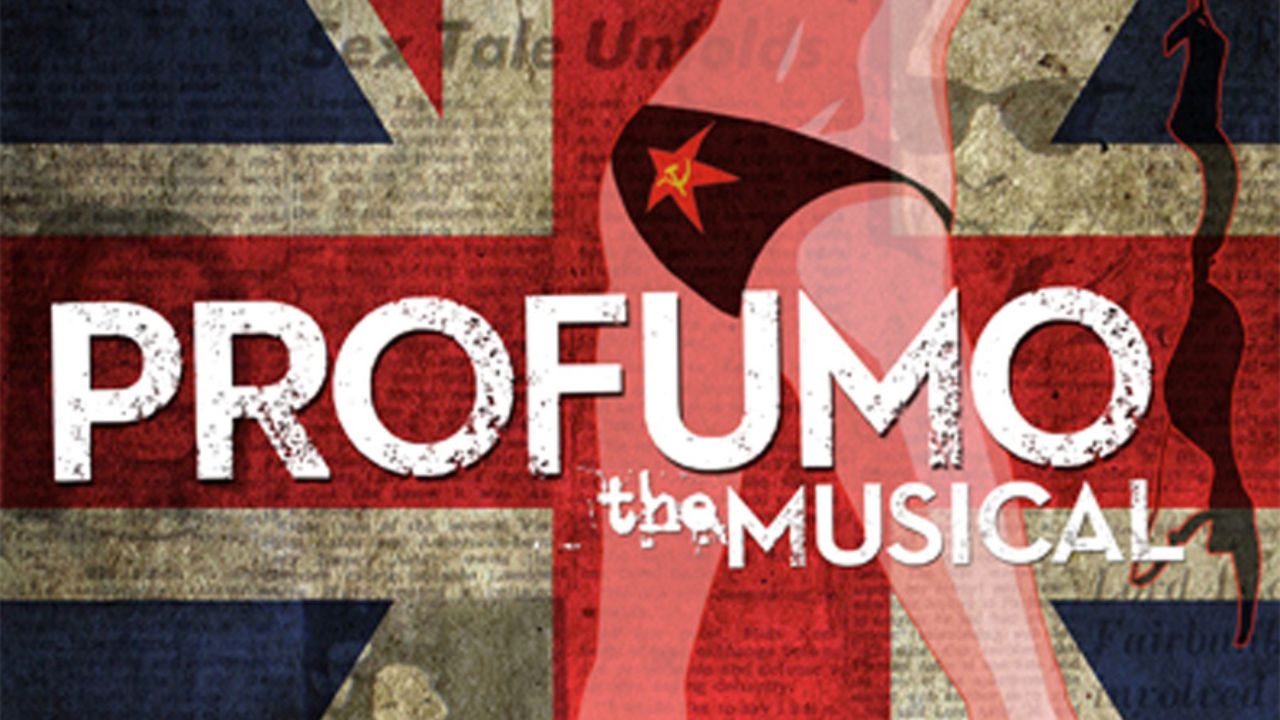A musical about a scandal: Profumo The Musical at Waterloo East Theatre
Unfortunately, the Profumo The Musical gives us nothing new on the Profumo Affair. Everyone, including the Kray Brothers, seemed perfectly nice and ordinary. Can anyone remember what the fuss was about? At Waterloo East.
Profumo: The Musical, produced and written by Gordon Kenny, presents the events around the 1960s Profumo Affair in which John Profumo, Minister for War in Harold Macmillan’s Tory government, embarks on a scandalous love affair with young nightclub dancer, Christine Keeler.

Staged on the 50th anniversary of the “Profumo Affair”, the key question is why the scandal is worthy of attention given that it is only one of a very long line of sex scandals during that time. Even just a cursory overview of the last 50 years reveals that the mix of politics, power and crime around the Affair has to judged unremarkable given the recent depth of depravity around the Jimmy Saville affair, the sheer shamelessness of Silvio Berlusconi and the stunning staging of the trial of former top Chinese politician Bo Xilai.
Maybe that’s just it: Profumo The Musical exploits our continuous appetite for the scandals & affairs reported on in the media. As its opening number “You’ve Never Had It So Good” shows in its frenzied interpretation of the 1960s, there is a ready audience to voyeuristically view the sexual appetites of powerful men. In fact, according to the show’s press release, the musical is a celebration of the anniversary of the affair. However, as I viewed the musical, I became more and more unconvinced that it came anywhere near exploiting the controversies around the historical incident of how powerful men like Profumo have a habit of straying into the world of desperate young women, sleazy nightclubs and the criminal class.
Instead, the musical constantly chops and changes its viewpoint through its fourteen songs, more like a collection of tracks at a concert: each song giving the audience a glimpse of something potentially interesting, but none building towards a climax or finding a sufficiently strong denouement. I noted at least seven different themes that were left hanging by the end of the show: the exploitation of runaway young girls; the sexual appetites of powerful men; post-WW2 black migration; 1960s anti-establishment ideology; English class warfare; espionage & Cold War politics; and London’s criminal class.
Using such a rich mix of themes and episodes should be a strength in a production: unfortunately, inProfumo, the basic dramatic elements such as the set, lighting and costume design neither located any of the scenes nor give them an aesthetically satisfying feeling. A blandness hovers around the characters on stage. This impacts on the characterisation of key figures particularly badly: resulting in the unfortunate effect that the characters of Christine Keeler and Mandy Rice-Davies are neither particularly sexy or desperately manipulative. Instead, they moved from cliched fame-seekers in songs such as “Movie Queen” to deliverers of moral messages in other songs such as “Bloodsuckers”. They also compete for the limelight with John Profumo and Steven Ward, who give their own side of the story in “Porno Blues” and “Jack in the Box”.
There is nothing to cry or laugh about in the show. More to the point, there is absolutely nothing that seems even vaguely shocking in the drama. The musical’s parodying of the Krays and Labourites Harold Wilson and Barbara Castles is simplistic. If only the Krays were a pair of buffoons knocking around London, spreading their charm. If only political events could be summed up over a cup of tea! Except for a couple of moments in the show, namely “Order In The House” and “Jack In The Box”, the mercilessness of criminals and politicians were bypassed for an easy sentimentality.
I felt in the end that Gordon Kenny did not believe in the strength of his own subject matter. The Profumo Affair offers a brilliant subject matter to created an edgy, hard-hitting drama but it requires the writer, director and the designers to break out of any ready-made musical genre formulae. The Profumo Affair is nothing if not complex and sordid: perhaps Profumo The Musical exemplifies the extent to which we have become desensitised to that sordidness.
Date reviewed: Thursday 29th August 2013
